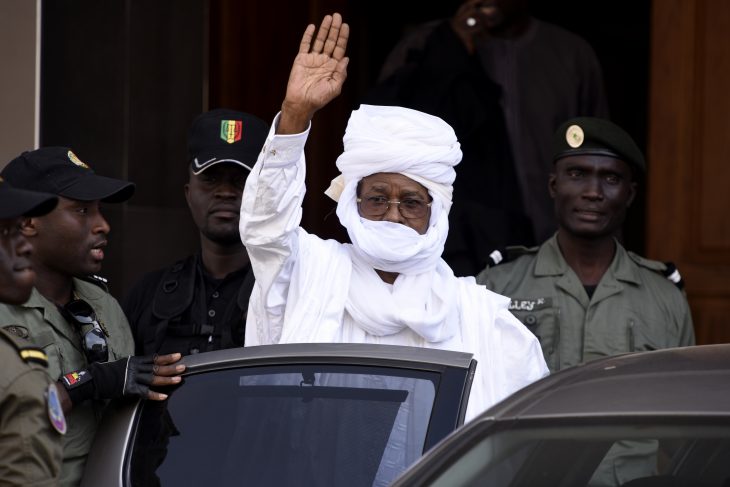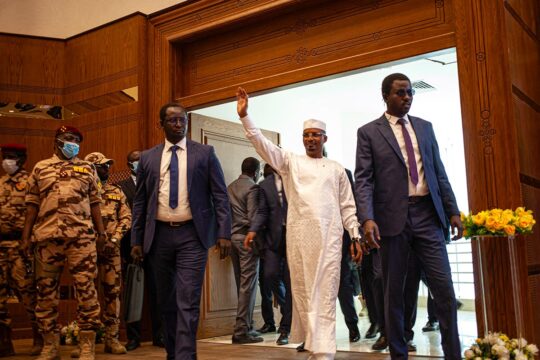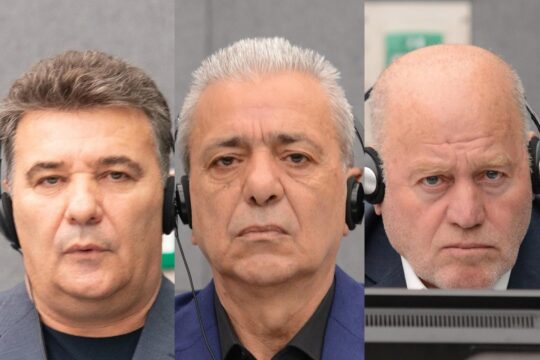A former African head of State was on Monday convicted by African judges sitting at an African court, in the name of Africa. Former Chadian President Hissène Habré was sentenced to life in jail for crimes against humanity and war crimes committed under his rule (1982-90). The Extraordinary African Chambers’ historic judgment in Senegal, where Habré has been in exile for some 20 years, did not come as a surprise.
This judgment is the culmination of a judicial battle waged for more than 20 years by victims and their lawyers, supported by several international organizations including Human Rights Watch (HRW), the International Federation for Human Rights (FIDH) and Amnesty International.
“Habré’s conviction for these horrific crimes after 25 years is a huge victory for his Chadian victims, without whose tenacity this trial never would have happened,” said Reed Brody of Human Rights Watch, who has worked alongside the victims for years. “This verdict sends a powerful message that the days when tyrants could brutalize their people, pillage their treasury and escape abroad to a life of luxury are coming to an end. Today will be carved into history as the day that a band of unrelenting survivors brought their dictator to justice.”
A Chadian commission of inquiry put the number of people who died under Hissène Habré’s repressive regime at 40,000.
A strategy of silence
Habré remained walled in silence throughout the trial, an attitude that Extraordinary African Chambers (EAC) Prosecutor Mbacké Fall claimed was an admission of guilt. The few times he broke his silence, when being brought to court by force, it was to denounce the “imperialism” and “neo-colonialism” of which he says he is victim. He was again brought to court forcibly on Monday, wearing a white robe and turban. This time he remained impassive.
The trial opened on July 20, 2015 and lasted for 56 days of hearings. Ninety-three witnesses testified before the court presided by Judge Gberdao Gustave Kam of Burkina Faso. They included factual witnesses brought by the prosecution, experts and one defence witness.
At the end of the hearings, Prosecutor Fall called for a life sentence against Habré, presenting him as “veritable boss” of the Directorate of Documentation and Security (DDS), Habré’s political police and main instrument of repression under his regime.
Fall also called for Habré’s assets to be confiscated, saying he had emptied the Chadian State coffers before fleeing to a comfortable exile in Dakar.
Habré’s lawyers, obedient to his strategy, also boycotted the trial. The court was therefore forced to assign him two lawyers from the Dakar Bar, Mbaye Sène and Mounir Balal. “There were no crimes against humanity or acts of torture, and certainly not war crimes,” Sène argued, taking everyone by surprise in his final arguments.
Balal went one better. “Hissène Habré is a patriot, a real patriot and a nationalist, a Statesman who defended the national interest,” he told the court.
Trial advances under Macky Sall
Habré, who arrived in Dakar in December 1990 when he was ousted by Colonel Idriss Deby, was first charged in Senegal in 2000. But the Senegalese courts said they did not have jurisdiction, so the victims turned to Belgium. Belgian courts can claim jurisdiction because some of the victims have acquired Belgian nationality. In September 2005, after nearly four years of investigations, a Belgian judge indicted Habré and Brussels requested his extradition. After Senegal refused to extradite Habré to Belgium and three years of fruitless negotiations over an African Union (AU) request, Belgium took Senegal to the International Court of Justice (ICJ). On July 20, 2012, the ICJ ordered Senegal to bring Habré to justice without delay or extradite him.
The case finally moved forward after Macky Sall was elected new President of Senegal. In 2013, Dakar inaugurated the “Extraordinary African Chambers” under an agreement with the African Union. The EAC, composed of judges from Senegal and other African countries, are mandated to try suspected perpetrators of the most serious crimes committed in Chad between 1982 and 1990, in other words, under Habré’s regime.
On June 30, 2013, Hissène Habré was arrested at his home in Dakar. Two days later he was charged with crimes against humanity, war crimes and torture.







